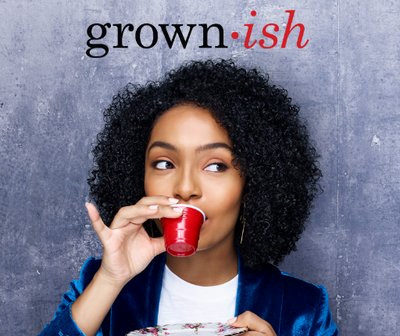[tribulant_slideshow gallery_id=”229″]
The seemingly neverending excitement, the weirdly contradictive anxious and optimistic thoughts along with the desire for freedom are all aspects that almost every college student can confidently agree one will experience when initially going to university. “Grown-ish,” an American sitcom television series aired by Freeform, is the perfect example of an individual going off to college and encountering some of the expected but mostly the unexpected.
This “Black-ish” spin-off is already widely favored despite being in its infancy. In fact, with only three episodes out, critics are raving about the very well-handled humorous representation of the transition from adolescent to young adulthood. In addition to being critically acclaimed, the show is rated 91 percent overall by Rotten Tomatoes making this hit television series a double positive, liked by both critics and audience.
Despite its very apparent similarities to its parent show “Black-ish,” “Grown-ish” is dissimilar in its plot. The show portrays the challenges of going from living at home to attending college and living on campus from the perspective of a young female freshman, Zoey Johnson. The creation of this comedic series is accredited to “Black-ish”’s Kenya Barris, a writer, producer and television show creator most notably recognized for “Girl’s Trip,” “Barbershop: The Next Cut,” and “America’s Next Top Model.” The comedy genre is obviously Barris’ strong suit which explains the success of both “Black-ish” and “Grown-ish.”
“Grown-ish” premiered Jan. 3 of 2018, and from the beginning, its plot is established, a tactic that is common in most television series. The pilot episode initiates familiarity with the main characters right away. Zoey Johnson, portrayed by Yara Shahidi, who is also the narrator of the show, is just beginning her tertiary education at the fictional California University of Liberal Arts. For a characteristically degrading reason, she finds herself enrolled in a midnight Digital Marketing Strategies class with the familiar character, Charlie Telphy, played by Deon Cole, as her professor.
In this class, awkwardly composed of drug addicts and prostitutes to add to the show’s humor, Zoey meets a group of individuals who will become her best friends. While attempting to answer the question of why they each chose the class, the main cast is introduced to the viewers. It is no mistake that Barris presents a hodgepodge of characters with various personalities, religions, sexual identities and mannerisms mimicking a realistic college scenario.
Trevor Jackson’s character, Aaron Jackson, is a sophomore campus activist for whom Zoey has puppy love. Emily Arlook’s, Nomi Segal, is homosexual and hiding this truth from her parents. Jordan Buhat’s Vivek Shah is a Drake fanatic and son of immigrants, and Luka Sabbat’s Luca Hall is an artistic marijuana user. Lastly, there are the Forster twins, Jazlyn Forster (Chloe Bailey) and Skylar Forster (Halle Bailey), who are both track athletes and have pseudo-personalities to offset their less socially accepted disposition. The show also stars Anthony Anderson as Andre “Dre” Johnson Sr, Zoey’s father, and Francia Raisa as Ana Torres.
Fans of “Black-ish” should be very appreciative of this spin-off seeing that it continues developing a character that was underrepresented in the original series. Shahidi’s original Zoey was presented as someone studious and angelic, the usual demeanor portrayed by adolescents.
In “Grown-ish,” fans are introduced to a more realistic Zoey Johnson. This is not insinuating that Shahidi’s character in “Grown-ish” is explicit, but this offspring of “Black-ish” delves deeper into Zoey’s character. Barris cleverly targets the subjects of personal development and self-redefinition using college during this specific stage in life. This is most likely what makes the series so attractive because almost everyone can relate to going through a period of issues with self-identity and being placed in morally comprising situations.
Despite its humorous features, “Grown-ish” strays away from the typical portrayal of solely the partying aspect of college. So far, its incorporated other scenarios like the struggle to balance social and school life, the absence of sleep, and the late night ‘hook up’ texts. Not to mention, most college students can attest to overdramatic parents, especially international students, and mandatory classes one would rather not attend. The show is connecting with the college demographic sincerely, establishing its own unique identity and creating the need to come back each week for more to the unwinding plot.
A lot of growth occurs in early adulthood, and it is all a part of learning and developing as a person. “Grown-ish” appears to be a success. Both critics and casual viewers are highly anticipating the remainder of the first season.





